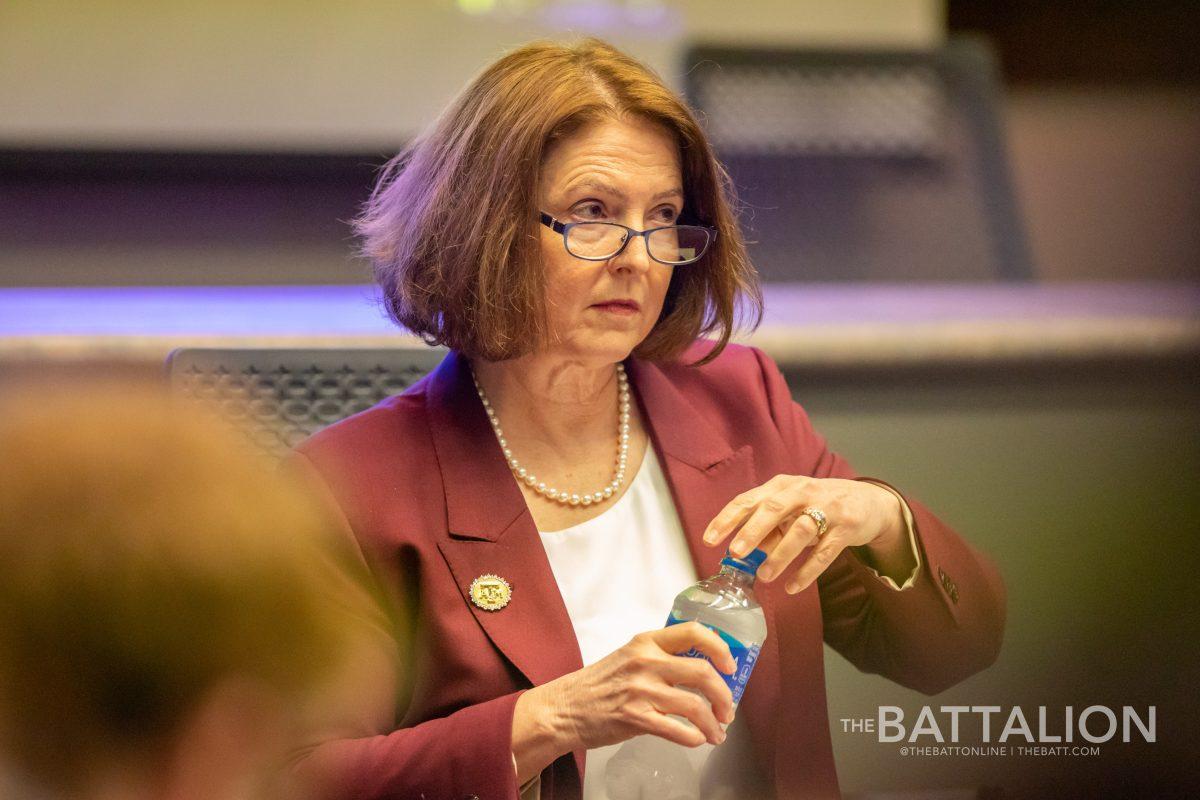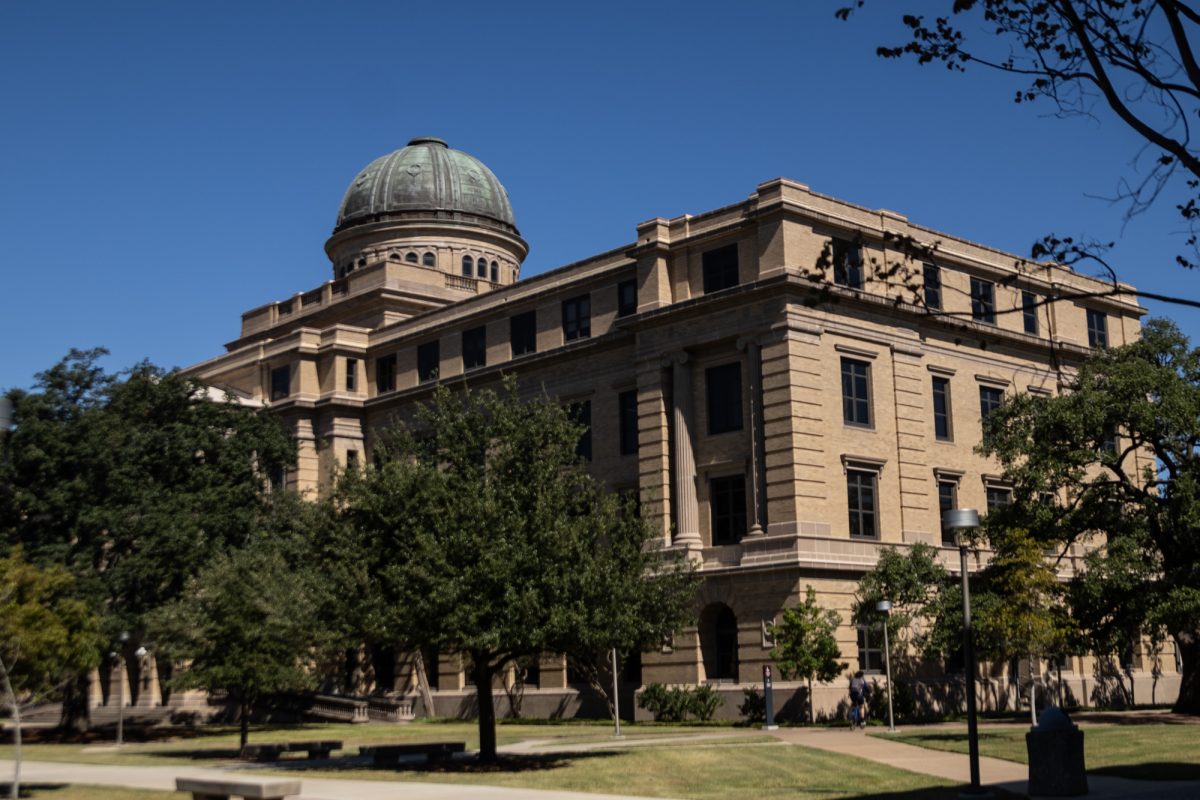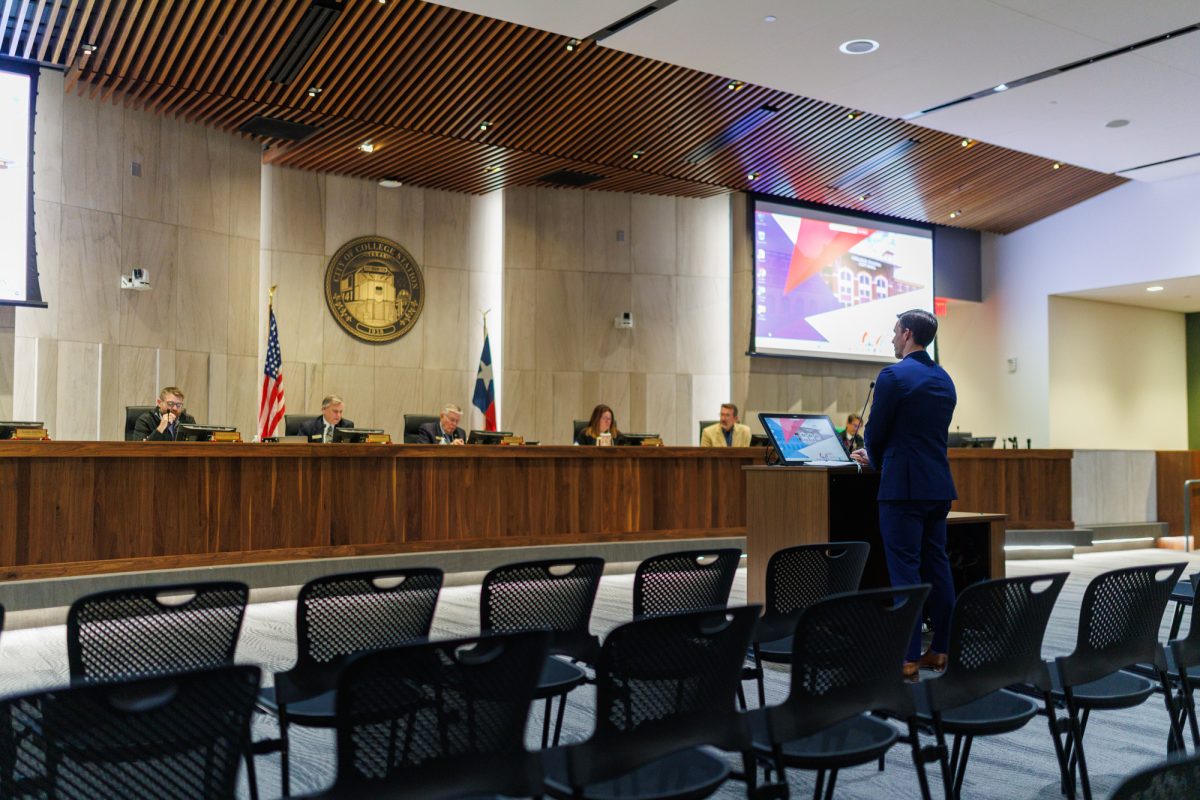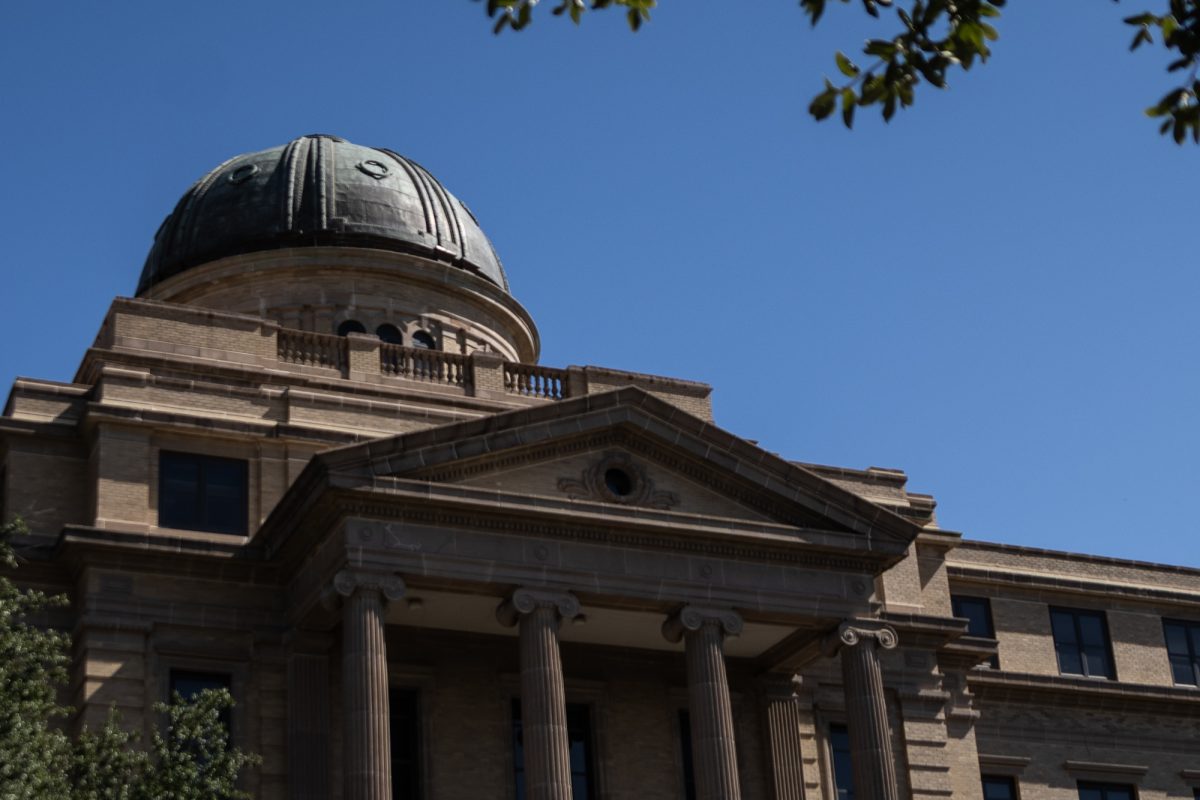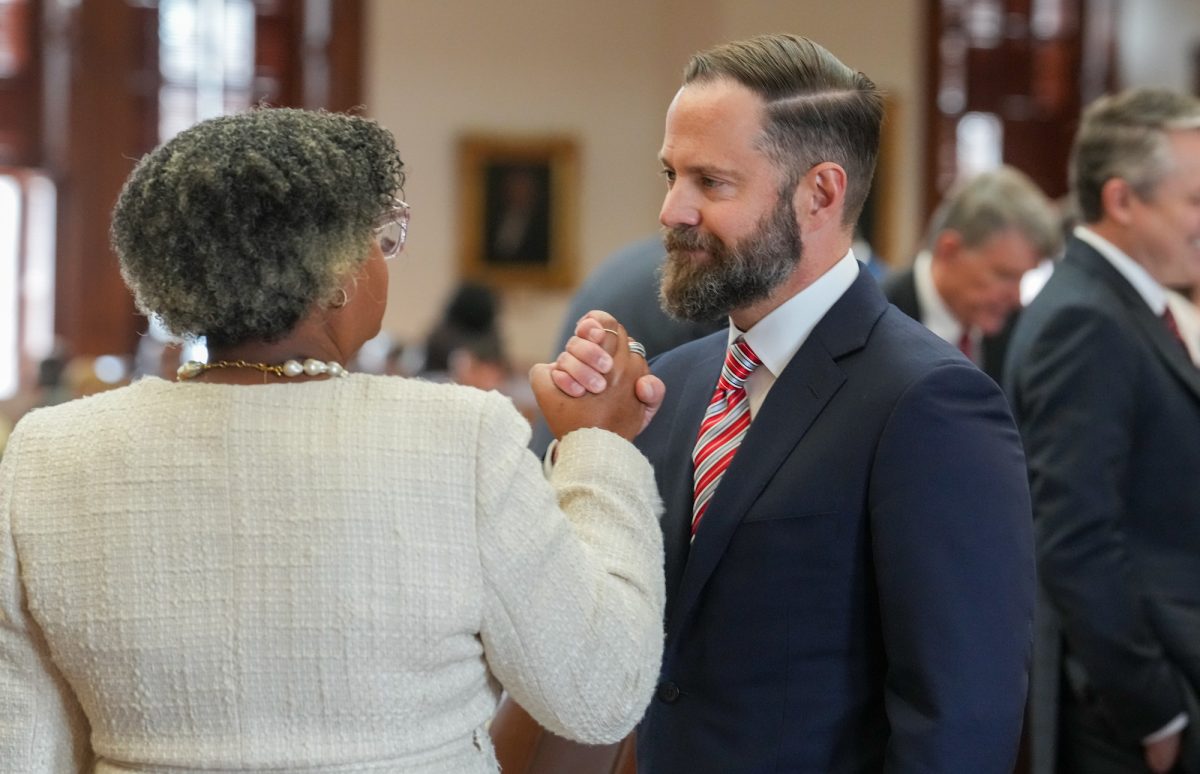During its meeting on Monday, Aug. 8, the Faculty Senate voted to pass the “Resolution of Shared Governance,” outlining widespread concerns that faculty voices have not been engaged in the decision-making process for major university changes, stating that “shared governance is no longer functioning as envisioned by faculty at Texas A&M University.”
With 80% of faculty senators voting in favor, the resolution specifically calls for President M. Katherine Banks and all other administrators to “engage in meaningful efforts to improve shared governance,” and cautions that Banks’ failure to commit to shared governance with A&M’s faculty creates mistrust for future administrative decisions.
According to the American Association of Universities, or AAU, shared governance is critical to “ensure that different voices are heard and integrated into a cohesive vision.” As a member of the AAU, A&M is responsible for upholding this standard of shared governance, among other academic principles, which were specifically cited within the Aug 8. resolution.
Speaker of the Faculty Senate Dale Rice said the outlined concerns in the resolution have been discussed for some time, and said he believes shared governance is critical to the university’s success.
“It’s important for everyone to recognize that the best universities in the country, those who make up the AAU, place a great deal of importance on shared governance,” Rice said. “We aspire to be among the best universities in the country, and that requires meaningful shared governance if we are going to reach that point.”
In response to a request for comment sent to the Office of the President, The Battalion received the following written statement from Vice President of Faculty Affairs N.K. Anand, Ph.D:
“It’s disappointing that this resolution doesn’t recognize the extensive faculty input that has been listened to on every major issue and change that has occurred in the last year,” Anand said. “There have been multiple opportunities for faculty opinion to influence decisions.There simply is not a single example given of when both the spirit and the letter of the policy was not followed.”
Specific to the reorganization on the Qatar campus, Anand wrote that administration sought extensive feedback from various faculty members.
“Regarding the Qatar issue mentioned, the facts show President Banks had extensive conversations going back to last fall with TAMU-Qatar Dean Cesar Malave, who secured input from the College of Engineering leadership and Dean of Faculties Office,” Anand said. “By the time the report was approved, it had gone through the TAMU-Q faculty, Faculty Senate Executive Committee, the Council of Deans, an ad hoc committee and top administrators who work with faculty.”
During the Aug. 8 meeting, Adam Kolasinski, professor of finance and a faculty senator, said feedback should be a priority, as it could improve administrative decision-making.
“I think it’s actually in President Banks’ best interest to do more to seek faculty feedback earlier, because there are several decisions she’s made where she didn’t have good information about the facts on the ground,” Kolasinski said. “She would’ve had that information had she engaged faculty who are knowledgeable on the process earlier on.”
Andrew Klein, professor of geosciences and senator on the executive committee, said during the meeting that although the effects of the resolution cannot be predicted, faculty should continually give input.
“We’re very concerned about some of the directions things seem to be going, and we’re not sure it’s going to get any better,” Klein said. “It may not do anything, but I don’t think that should prevent us from going forward with this.”
Rice said in an interview with The Battalion that the senate’s hope is for the relationship between faculty and administration to be strengthened through transparency.
“We don’t expect that we’ll agree with President Banks on every single thing, nor are we asking for that,” Rice said. “But what we do expect is that concerns will get taken into account, and the decisions will at least some of the time reflect those concerns and be obvious that things were done to accommodate faculty along the way.”
Rice said the lack of faculty consultation began early in Banks’ presidency when an outside firm, MGT Consulting, was hired to propose recommendations for the university, rather than getting input from faculty. Rice cited the on-campus library and Qatar campus reorganizations as points of concern.
“Parts of the reorganization were not very transparent to us,” Rice said. “It’s that sort of thing that people look at and see a pattern, either of not involving faculty early, or when faculty are involved, not really listening and reacting to their concerns, but moving ahead with whatever the plan was in the first place.”
In its conclusion, the resolution provided a clear directive for President Banks and A&M’s administration.
“Be it further resolved that the Faculty Senate requests President Banks to direct all levels of administration at Texas A&M University to engage in meaningful efforts to improve shared governance and restore trust in the decision-making process,” the resolution read.
Editor’s Note: The original version of this article included a quote that was mistyped by the sender. The article has been updated to reflect the original written statement provided by the source.




